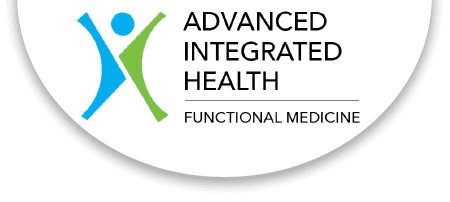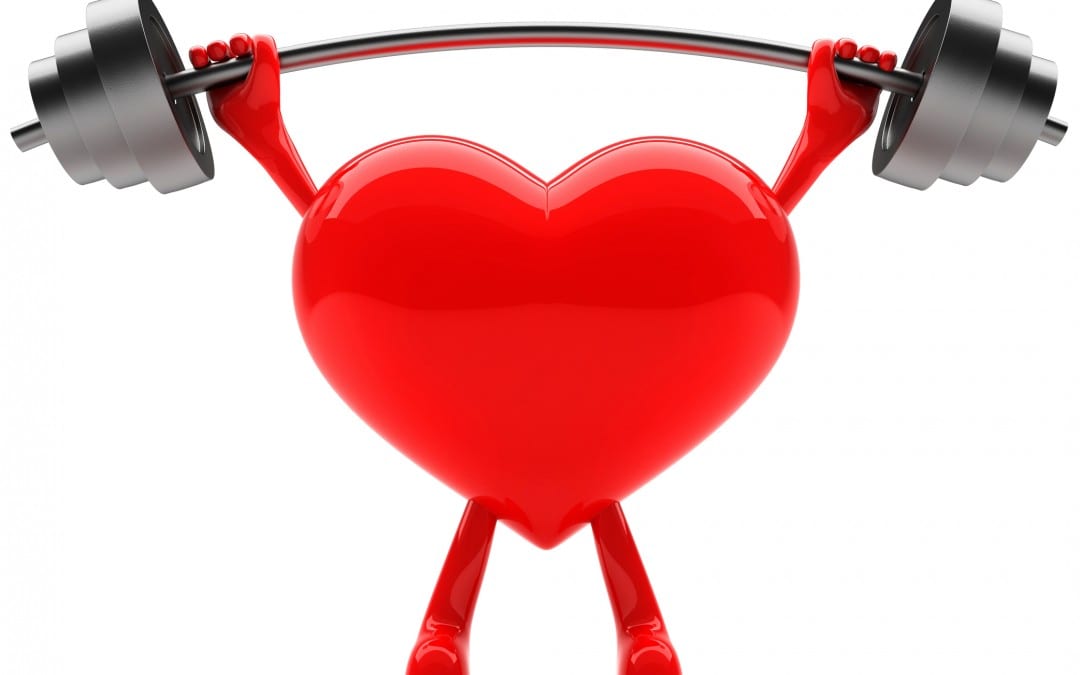Heart Sound Recorder
Assessing Nutritional Deficiencies and Health Risks with the Heart Sound Recorder
Your HEART is the most important muscle in your body. Every day it beats 100,000 times, sending 2,000 gallons of blood through 60,000 miles of blood vessels!
For OPTIMAL function, it is vital that it has the proper QUALITY and QUANTITY of nutrients to maintain its correct RATE, RHYTHM and TONE.
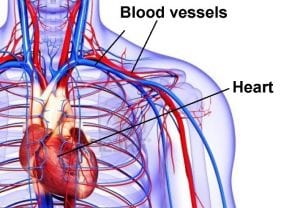
The Heart Sound Recorder (HSR) is a modern digital version of the Endocardiograph, an engineering medical marvel designed in 1934 by Dr. Royal Lee, the great American inventor and pioneer in nutritional research. This remarkable instrument measures and records the heartbeats which gives doctors insight into how well your heart is FUNCTIONING.
The HSR is a non-invasive technology that uses a specialized microphone placed over your heart. The three key indicators of heart health (RATE, RHYTHM and TONE) are recorded for each of the four heart valves to create a graph.
Why is this important? Because certain types of heart STRESS, (i.e. chemical, nutritional and emotional) can be seen by analyzing these three important indicators.
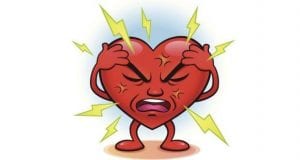
Once RATE, RHYTHM and TONE are measured, doctors specializing in FUNCTIONAL MEDICINE can offer informed suggestions to expect IMPROVEMENT of the heart sounds. (See sample graph) Comparison graphs help determine the effectiveness of recommendations taken to improve the quality of your life.

Your heart absorbs nutrients very quickly! When proper nutrition is supplied, improvement of the heart can be seen on the graph, often within minutes. Therefore, the Heart Sound Recorder is an important tool in monitoring the progress you are making when you go from Nutritional Deficiency, to Nutritional Sufficiency.

The Three Key Indicators of Heart Health and Function We Measure with the Amazing Heart Sound Recorder
Rate
Your autonomic nervous system controls the RATE at which your heart beats. This part of the nervous system has two parts. One side is the SYMPATHETIC, controls your “fight or flight” response, which can ACCELERATE your heart rate. The other side, the PARASYMPATHETIC, controls your “rest and digest” response, which can SLOW your heart rate. A healthy heart has a dynamic balance between the two, with an OPTIMAL heart rate of between 60-80 beats per minute.
“How FAST or SLOW is YOUR heart beating?”
Rhythm
The RHYTHM of your heart sounds shows the specific WORK TO REST RATIO on the graph. Your heart should be resting twice as long as it is working. This means that if you live to the ripe old age of 90, that your heart should be RESTING for about 60 years! Heart Sound recordings are made to see if your heart is working too hard, or not working hard enough.
“Is Your Heart RESTING as much as it is WORKING?”
Tone
The TONE of your heart refers to the STRENGTH of the contractions as it pushes blood through your body. The height and the width of the first and second sounds, also known as “Lub-Dub” is the sound your heart makes. A graph of these sounds proves how efficiently your heart pushes blood through your body and if it is properly ‘refilling’ for the next heartbeat.
“Is Your Heart Beat STRONG Enough or is it’s Contraction too WEAK?”
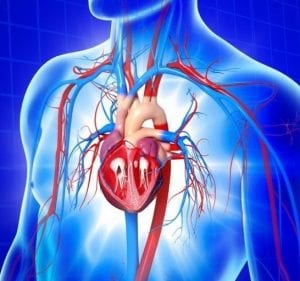
“Heart WEAKNESS is probably the most specific indication of a B-COMPLEX DEFICIENCY. It disappears as soon as the deficiency is restored. If permitted to exist for long periods, it is natural to assume that there will be degenerative changes, enlargement, coronary sclerosis, etc. as a consequence of the overload on the heart muscle.
“We can say that we find no condition, either directly or indirectly, so responsive to nutritional therapy as that which is reflected in heart conditions.”
– Dr. Royal Lee, Pioneer in Nutritional Science
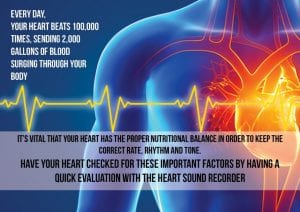
NORMAL GRAPH

NORMAL RATE (SPEED), RYHTHM (WORK TO REST RATIO) AND TONE (STRENGTH OF HEART CONTRACTIONS)
3:30 PM
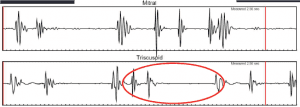
ADDITIONAL 2nd SOUND, HIGHER THAN NORMAL 2nd SOUND, EXTRA ACTIVITY BETWEEN BEATS
(REPRESENTS BOTH AN ALTERATION IN BOTH RYHTHM AND TONE OF HEART BEATS)
2 Hours Later, AFTER 3 DOSES WHOLE FOOD VITAMIN B COMPLEX
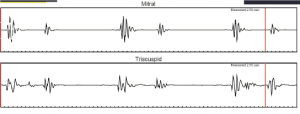
RESTORATION OF NORMAL RYHTHM AND TONE AFTER NUTRITIONAL DEFICIENCY ADDRESSED
Why are the SOUNDS (vibrations) of your heart beats so important to understand?
Well, its due to the fact that your heart’s reaction to certain types of STRESS, (i.e. emotional, chemical and especially NUTRITIONAL stress), can be measured using this advanced computer technology.
That’s right! We can actually SEE heart STRESS by having an extremely sensitive microphone HEAR and then RECORD the three key indicators of heart health and function – the RATE, RYHTHM and TONE of your heart beats on a graph, (see above -we do ALL four valves, not just the MITRAL valve).
More importantly, the Heart Sound Recorder (HSR) not only measures these indicators, it helps us optimize them for you by addressing a major CAUSE of the problem – NUTRITIONAL DEFICIENCY!
